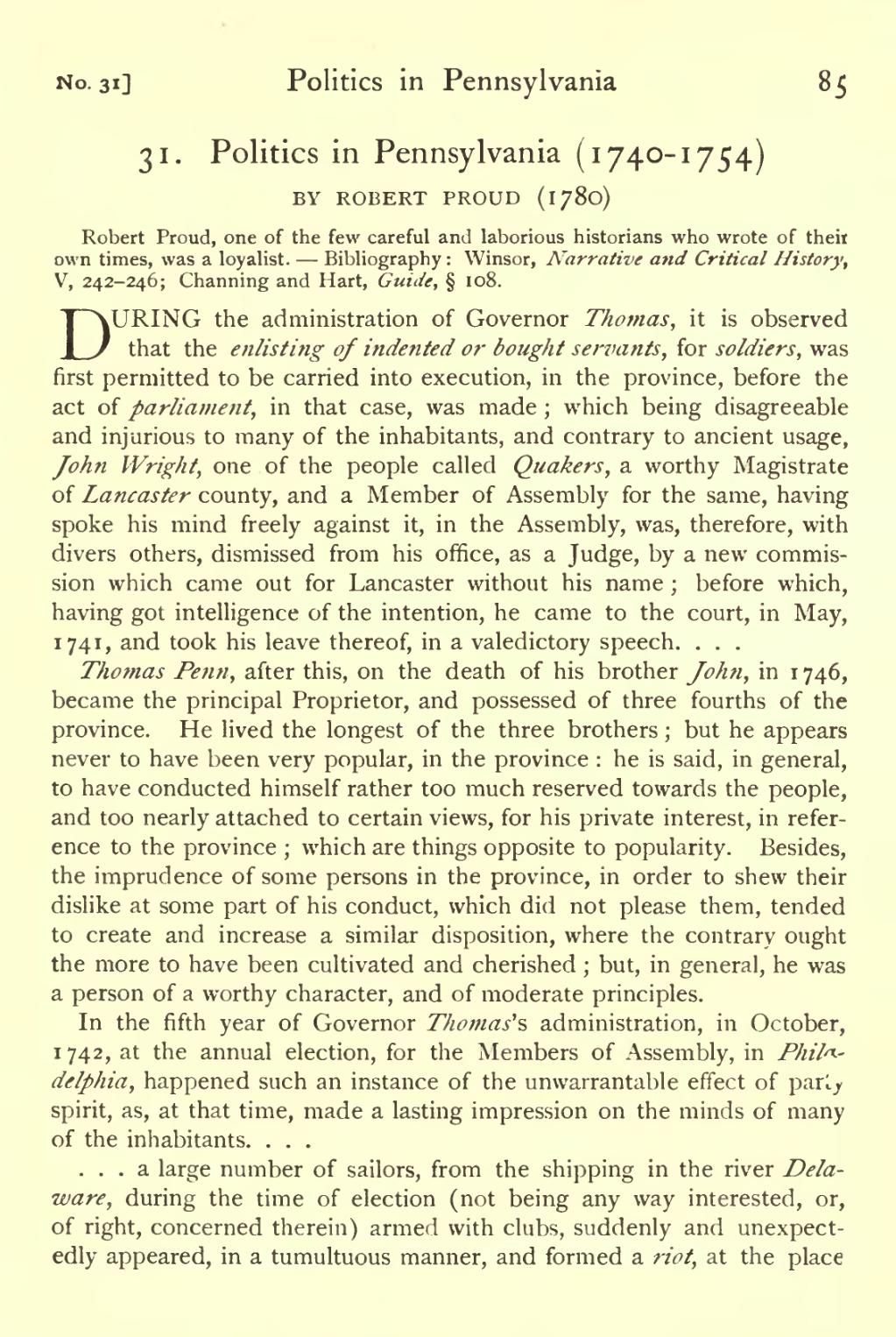31. Politics in Pennsylvania (1740-1754)
BY ROBERT PROUD (1780)
Robert Proud, one of the few careful and laborious historians who wrote of their own times, was a loyalist. — Bibliography : Winsor, Narrative and Critical History, V, 242-246; Channing and Hart, Guide, § 108.
DURING the administration of Governor Thomas, it is observed that the enlisting of indented or bought servants, for soldiers, was first permitted to be carried into execution, in the province, before the act of parliament, in that case, was made ; which being disagreeable and injurious to many of the inhabitants, and contrary to ancient usage, John Wright, one of the people called Quakers, a worthy Magistrate of Lancaster county, and a Member of Assembly for the same, having spoke his mind freely against it, in the Assembly, was, therefore, with divers others, dismissed from his office, as a Judge, by a new commis sion which came out for Lancaster without his name ; before which, having got intelligence of the intention, he came to the court, in May, 1741, and took his leave thereof, in a valedictory speech. . . .
Thomas Penn, after this, on the death of his brother John, in 1746, became the principal Proprietor, and possessed of three fourths of the province. He lived the longest of the three brothers ; but he appears never to have been very popular, in the province : he is said, in general, to have conducted himself rather too much reserved towards the people, and too nearly attached to certain views, for his private interest, in reference to the province ; which are things opposite to popularity. Besides, the imprudence of some persons in the province, in order to shew their dislike at some part of his conduct, which did not please them, tended to create and increase a similar disposition, where the contrary ought the more to have been cultivated and cherished ; but, in general, he was a person of a worthy character, and of moderate principles.
In the fifth year of Governor Thomas's administration, in October, 1742, at the annual election, for the Members of Assembly, in Philadelphia, happened such an instance of the unwarrantable effect of party spirit, as, at that time, made a lasting impression on the minds of many of the inhabitants. . . .
. . . a large number of sailors, from the shipping in the river Delaware, during the time of election (not being any way interested, or, of right, concerned therein) armed with clubs, suddenly and unexpectedly appeared, in a tumultuous manner, and formed a riot, at the place
